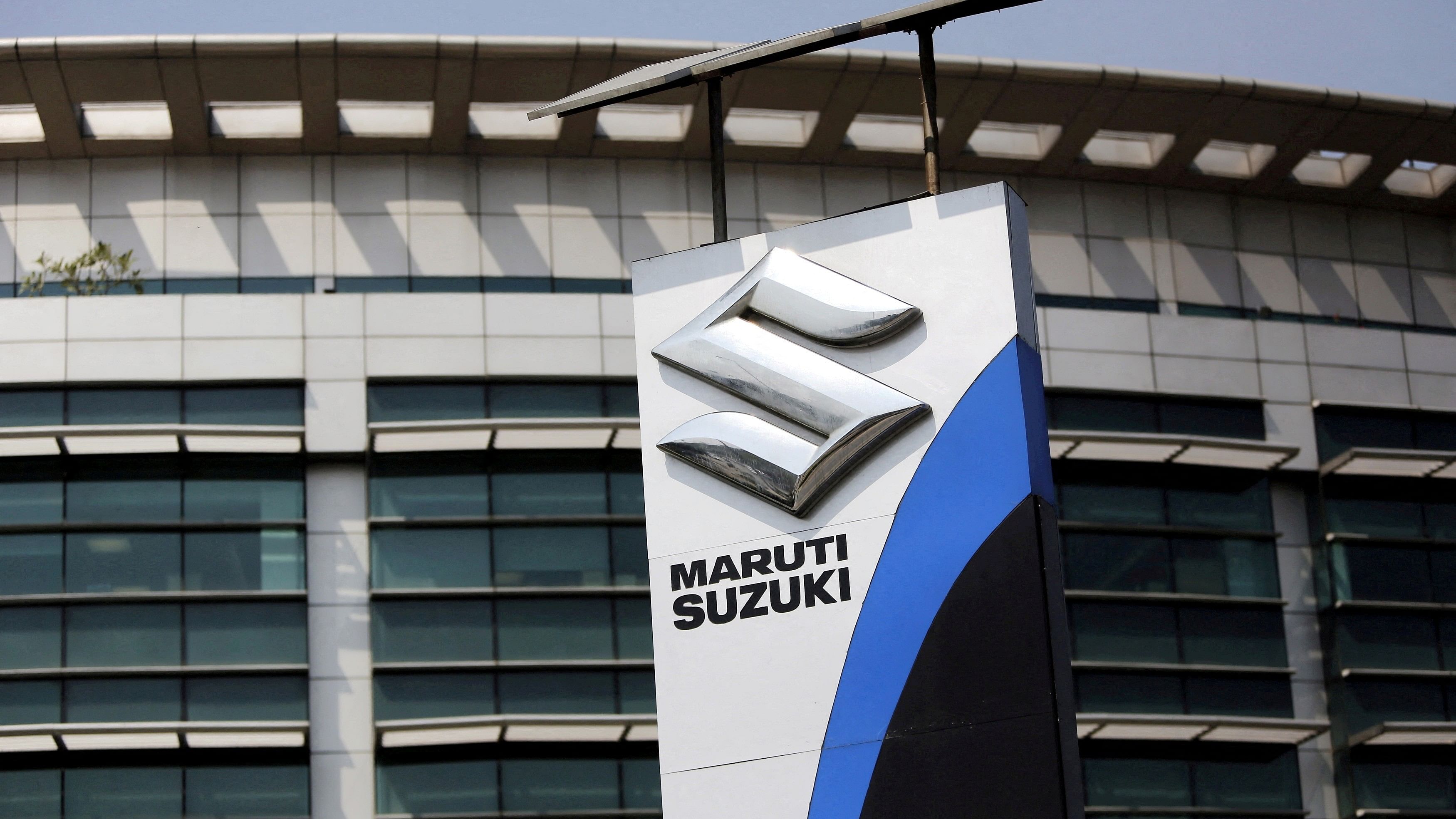
Corporate office of Maruti Suzuki India Limited is pictured in New Delhi.
Reuters Photo
Tata Motors may have stolen the march in unveiling its electric vehicle (EV) plans, but for the country’s largest car maker Maruti Suzuki the pursuit of net zero emissions lies not so much in electrification as in rolling out vehicles that use diverse fuels that would help minimise its carbon footprint.
“Many people confuse electrification with decarbonisation,” Rahul Bharti, Executive Officer- Corporate Affairs, Maruti Suzuki told DH. “Even by 2030, a large chunk of the new car sales will be non-EVs. So we need a combination of technologies which reduce carbon (emissions) and is addressable to a large volume as well,” he added.
“A niche or a low-volume player can afford to think of one technology, but a company of our size and volumes has to work on all technologies that help reduce carbon emissions,” he further underscored.
With EVs constituting a mere 2-3% of its product offering, any meaningful carbon reduction cannot be attained without addressing the fuel orientation of the 97% of the product line, Bharti argued.
To this end, a blueprint has been drawn up for their product mix by 2030-32, in which EVs (comprising of six variant vehicles) will account for 15% of its offerings, hybrid electric technology will power 25% of its vehicles and the remaining 60% will run on compressed natural gas (CNG) and bio-fuels such as compressed biogas and ethanol (with flex fuel engines).
Last year MSIL unveiled India’s first flex-fuel, mass-segment prototype car, the Wagon R FFV, capable of running on an ethanol blend ranging from 20% to 85%. This vehicle is planned to be launched in 2025.
A lot of manufacturers have launched EVs just to show their technology prowess and not necessarily their environmental support,” observed Shashank Srivastava, senior executive officer, marketing and sales. Apart from the known challenges like inadequate infrastructure, high cost of ownership, and the fact that the massive electricity demand involving coal-based generation doesn’t make EVs much “sustainable”, Srivastava and Bharti argued.
The demand for CNG vehicles is growing on the back of growing CNG distribution infrastructure in the country, Srivastava highlighted. The share of CNG in MSIL’s product portfolio stands upwards of 25%, while for the industry it averaged at 14.1%. CNG offerings were expanded to include products sold through the premium sports utility vehicles (SUV) offerings as well. The company now offers CNG options in 14 models.
Besides low-carbon emissions, CNG vehicles also help shrink the country’s import bill, making for a win-win situation for the customer, environment and the government, Bharti highlighted.
With a 40% share in India’s car exports, MSIL is targeting to increase its shipment, from the present 2.5 lakh vehicles per annum to 7.5-8 lakh by FY 31. This will include multiple powertrains technologies including BEVs and other alternative fuel vehicles.
As EV production, the company is keen on indigenisation to bring down costs and also ramp up production easily. India’s first lithium-ion cell manufacturing plant has been launched by MSIL in Gujarat from which it is exporting cells. Its parent company, Suzuki, is also investing in Gujarat, to construct a plant to manufacture BEV batteries, Bharti pointed out.